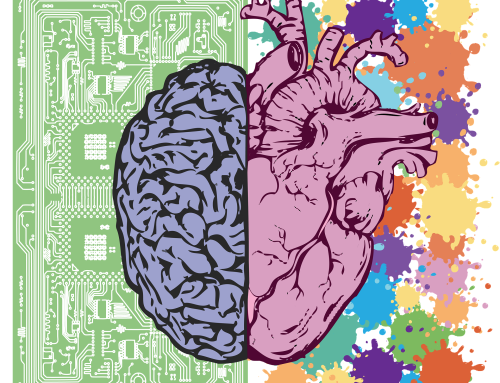I want to talk about better leadership – specifically, Better Leadership Through Psychedelics
Just a few months ago, Alberta legalized the testing of psychedelics and empathogens in medical situations. In doing so, the district often viewed as “Canada’s most conservative hotbed”, became the first Canadian jurisdiction to join The Netherlands, Portugal, Brazil, Peru, Jamaica and The Bahamas.
Many US states are studying the potential of psilocybin for medical uses. Oregon and Washington DC, in fact, have legalized it completely. There’s hope that treating patients with a combination of therapy and psychedelics could be an attractive and cost-effective alternative to a lifetime of popping pills.
But this isn’t new.
The reason there’s so much sudden momentum around this issue is because a lot of brave therapists have been using psychedelics for years to help individuals with PTSD and treatment-resistant depression and addiction overcome their challenges.
They’ve been helped by a bunch of unaccredited volunteers.
I’m one of them.
For the past 5 or 6 years I’ve been occasionally called upon to sit as an assistant in psychedelic therapy sessions alongside an experienced and trained therapist. In my first career I was a playwright, theatre director and sometime-visual artist, so I’ve moved in a world where psychedelics, though far from ubiquitous, were not unusual. I also developed a parallel career as a business coach and leadership-training facilitator. These two different worlds gave me sufficient experience and comfort to hold space for people from diverse backgrounds who were exploring these medicines therapeutically. After a few years of this semi-professional work, I decided that I’d better get some proper training.
In my training I’ve learned that a client with PTSD feels in a constant state of fight or flight. In traditional talk therapy a client can understand they are no longer in danger up in their head. But their nervous system remains in a perpetual fight or flight state, constantly vigilant and on guard. Psychedelics and empathogens allow the client’s nervous to experience psychological safety, often for the first time.
It’s a powerful and transformative experience.
If you’re reading this on LinkedIn, or some similar business-themed platform, you may be familiar with peer-to-peer support executive support groups like MacKay CEO Forums or TEC Canada or any of the other mastermind groups that are around. These are forums where leaders can come together with other leaders and discuss complex leadership issues with complete confidentiality. With a Peer Advisory Circle you can gain new ideas and insights from peers who care deeply about the success of fellow members while holding one another accountable for results.
I began to wonder what if we could combine Psychedelics with the kind of peer-to-peer Leadership that these mastermind groups are so famous for?
Even if you’ve never experienced psychedelics, it’s likely that you already know they are powerful visionary tools. Imagine the potential if your senior leaders could expand the boundaries of what they believe is possible and embark on the path of heart-centered leadership. Imagine how they could then influence meaningful change.
I believe that each of us has what the author and business consultant Gay Henricks calls an Upper Limit problem. This is some story that each of us has internalized and which keeps us from achieving the full expression success, fulfillment and abundance which we could and should achieve.
One of my Upper Limit problems, for instance, is imposter syndrome. In a group of business professionals, I used to feel underqualified because I spent the first 25 years of my career as a playwright and theatre director.
While I was on an ayahuasca retreat with Dr. Gabor Maté I learned a new way of looking at this. Gabor is a medical doctor who, while treating some of the most-hard core drug addicts in Vancouver’s downtown east side, discovered that the most effective way of addressing the trauma that lay at the root of their addiction, was through this unique Peruvian plant medicine. Gabor has spent many years since championing ayahuasca and other medicines for addiction, trauma and personal growth.
That day in the jungle, seated in a circle with 27 other participants, Gabor interrupted my story and asked me a very pointed question that cut right to the heart to the issue:
“Is that first time you’ve felt like an imposter?”
Well, no. I grew up as a farm kid, but my parents scraped together their pennies and sent me to one of the most prestigious boarding schools in Canada with some of Toronto’s elite upper class. (Talk about feeling like an imposter. No one knows how to ostracize like rich kids.)
And was that first time I felt like an outsider, Gabor asked. Not on your life. The reason my parents sent me away to school was because I was a sensitive artistic child being bullied in a rural junior high school.
And was that first time I felt like an outsider? No. I was the sensitive artistic son of an athletic but poor farmer who had grown up without electricity in the 1940s.
So, even as an infant, my nervous system was taught that I did not belong wherever I was found.
You can tell me that I – an artist and writer who struggled to make ends meet through most of my 20’s and 30’s – belong in a boardroom. And I can process that statement in my head. I might even nod and say that I agree with you. But my nervous system is always vigilant, in a perpetual fright or flight mode, looking for cues that I don’t belong.
I’m sure you can imagine how this impacts my business.
One of the effects of an empathogen like MDMA, which is the active ingredient in the street drug Ecstasy, is that you not only love everybody, you love yourself.
Imagine that you’re me.
What if you were taking a Psychedelic Leadership program along with 6 other leaders from different industries. For the past quarter you’ve met every month to in sober meetings with your colleagues to describe and discuss issues that have plagued your leadership style. With the help of your cohort members you’ve zeroed in, as I have, on the root cause of imposter syndrome. You’ve identified several places in your work and private life where this shows up. You’ve even come to realize that you feel like an imposter around your partner and children.
Now, at the halfway mark of this program, your entire cohort embarks on a 3-day medicine retreat.
The first evening you spend refining your intention for the retreat. The second day you embark on a ceremony with MDMA, the powerful empathogen I mentioned earlier. Imagine that the facilitator sits you opposite one of the members of your leadership cohort, with whom you’d developed trust over serval months.
Let’s ask this person to sit in as your father.
What if this person told you that you are accepted? That you are loved. That you are valued simply for who you are. That you belong.
Can you imagine how you could hear and feel and accept that sense of belonging not in your head but in your body?
And what if, the next day you had the opportunity to review what you’ve learned through your nervous system and re-integrate those learnings into your head?
Let’s go even one step further. What if those same leaders, which whom you’d gone through the crucible of that experience, resumed their monthly meetings for another three months of integration. What if, together, you held yourselves accountable for integrating that learning into your business and personal life?
Can you imagine how your leadership style might transform?
That is the potential of Psychedelic Leadership.
This article is taken from a speech delivered at Disrupt HR Calgary November 2022. The speech can be viewed here.
For more information on Psychedelic Leadership contact Ken Cameron at ken@corporate-culture-shift.com







